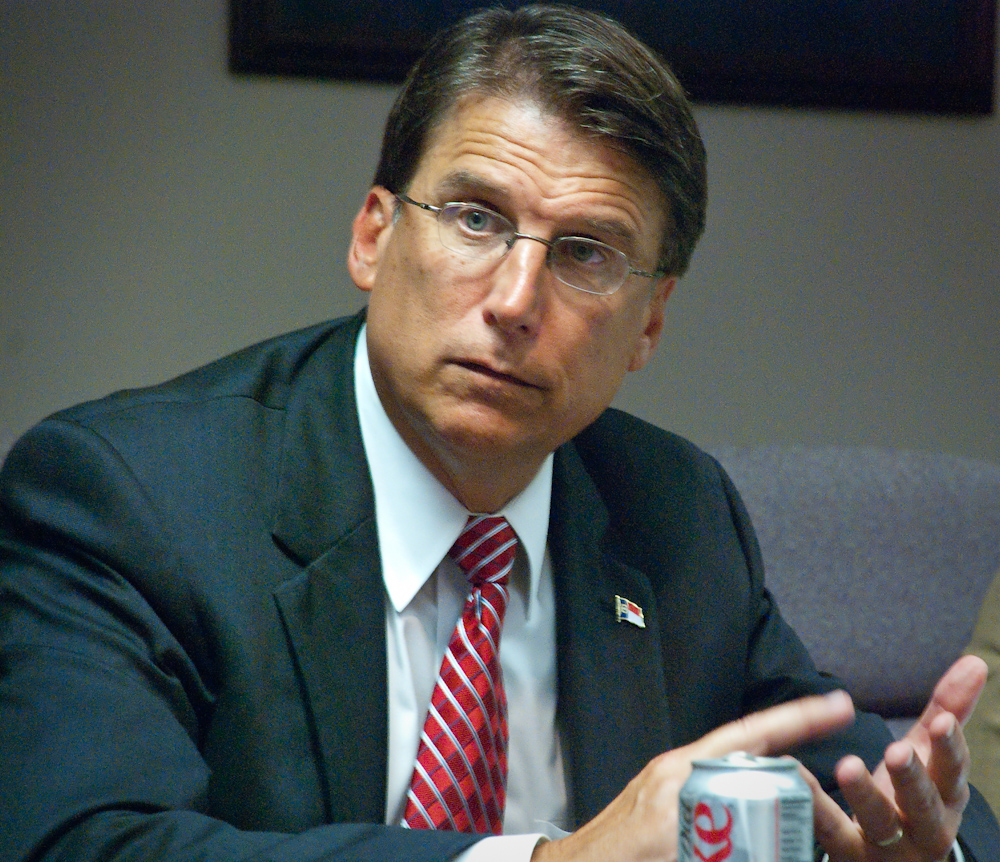It’s long been a stereotype among liberals — and one backed up, to some extent, by empirical evidence — that conservatism is an ideology predicated on low intelligence. In simpler terms: Republicans are dumb; Democrats are smart. Recently though, this simplistic view has begun to give way to a different one. The new theory holds that GOP politicians act not out of stupidity, but out of malice. They don’t actually believe the outlandish statements they propagate. Instead, they put them forth to win over gullible voters and fulfill their own interests. The left can’t afford to underestimate its foes on the right, which means it must understand their true motives.
In many cases, this theory holds water. Former President George W. Bush provides a reasonable example. Throughout his campaign for president — and his run in the Oval Office — Bush had a reputation as a dimwitted oaf who repeatedly put his foot in his mouth. But this ineptitude was a guise the Yale and Harvard graduate adopted to connect to red-state voters. His earlier political failures had taught him that supercilious intellectuals don’t poll well, and many Americans would prefer a relatable president who’s a little rough around the edges. Likewise, although many have justifiably censured Bush’s disastrous actions as president, his policies align with conservative ideology in most respects; from that perspective, he had a successful tenure as commander in chief. While we may remember Bush as a simple-minded leader, underneath that lay a dangerously calculating political mind.
At the same time, it’s important to make sure that the pendulum doesn’t swing too far in the other direction. Even if a Republican manipulates his constituents and acts selfishly in office, he can also make illogical decisions and generally make a fool of himself. The conventional wisdom about conservatism has become such for a reason. For evidence of this, look at North Carolina, where Gov. Pat McCrory has chosen a remarkably stupid hill to die on.
While you might not recognize the deceptive name of the Public Facilities Privacy and Security Act, or HB2, you’ve likely heard of its key stipulation: In North Carolina’s government buildings, transgender people can’t use the bathroom of their choice. More broadly, this legislation removes anti-discrimination protection for LGBT individuals in North Carolina, which explains why it’s ignited backlash across the nation since its passage in March. The immense pressure hasn’t yet swayed McCrory, but that obstinance may not end well for him.
The Tar Heel state finds itself immersed in multiple lawsuits pertaining to HB2. The most damaging one comes from the Justice Department itself, which is charging North Carolina for violating Title IX and the U.S. Constitution. If the courts agree with this — and it seems likely they will — the federal government could curtail funding to the state, dealing it a crippling blow. And North Carolina needs as much federal money as it can get after HB2 scared away the NBA, the NCAA and other businesses. To this point, the legislation has cost McCrory’s state hundreds of millions of dollars, and it’ll only get worse from here.
In addition, HB2 does not have much support from North Carolinians. A majority of the state’s residents have said that the law hurts the state, and it’s never had a positive standing among most voters. This shouldn’t surprise McCrory, given the aforementioned economic effects of the bill (and its morally repugnant premise, which we really shouldn’t lose sight of). In an election year, you’d expect him to distance himself from this pernicious piece of legislation, but the governor has stuck to his guns, faulting the ever-present specter of “politics” for the backlash to HB2 and continuing to defend its basic premise. This move has no clear benefits for McCrory — and could definitely blow up in his face come November.
So why doesn’t McCrory just relent and push back against HB2? As my Diamondback colleague Reuven Bank noted in April, former Arizona Gov. Jan Brewer did the same thing with her state’s anti-LGBT law in 2014 after boycotts threatened to harm its economy, so it’s certainly not without precedent. With McCrory’s seat heating up, Democratic challenger Roy Cooper has pulled ahead in many polls and now represents a legitimate threat to unseat him. Giving up his stubborn support for HB2 may save McCrory’s political career; maintaining his position, as he seems likely to do, could seal his fate.
Hanlon’s Razor tells us that when looking for the cause of a disagreeable action, we should blame stupidity, rather than malice. Although this axiom doesn’t apply to everyone, it’s certainly true of Pat McCrory, whose refusal to turn on HB2 is bleeding his state dry and might cost him his political career. For the smug liberals who want to feel the schadenfreude of a conservative’s self-inflicted downfall, keep an eye on North Carolina. When Election Day comes around, we might be able to chalk up another success story for that stereotype.
Ryan Romano is a sophomore journalism major. He can be reached at tripler26@gmail.com.



